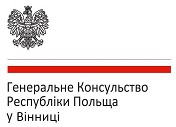Концепція «балансу сил» в Центрально-Європейському регіоні крізь призму російської агресії проти України: теоретико-методологічні аспекти
Ключові слова:
balance of power, Ukraine, Central Europe, annexation of Crimea, Russian aggressionАнотація
It substantiates theoretical and methodological basis of the comprehensive political science analysis of the transformation of new systems «balance of power» in Central Europe. The different theoretical and conceptual approaches to the understanding of the international relations system in the late XX – early XXI century and described a new balance of power model. The essential characteristics of the European security paradigm in the dimensions of establishing a «balance of power» new system in Central Europe are revealed.
It is stated that against the background of changes in the international system, there is a need to revise theoretical and conceptual approaches to the study of the concept of «balance of power», the theoretical foundations of which were laid in different from today’s world-political conditions. Analysis of the concept of «balance of power» shows that over time, its interpretation significantly changed and supplemented by new arguments, which led to the conceptual ambiguity and even blurriness. It is also noticeable differences in approaches to the «balance of power» in the foreign policy practice of different states. The very concept of force in international relations, as well as the ways of its application, evolved.
It turns out that it is safe to speak of the historicity of the principle of balance of power, the structure and content of which have changed throughout world history. The classical interpretation of political realism (the approach of G. Morgenthau) was based on the bipolar world order, the presence of two superpowers (the USSR and the USA) and two military-political blocs (NATO and ATS) in the international system. The destruction of the bipolar system forced the researchers to seek new interpretations of the balance of power. So there were modifications to the principle of balance of power for a unipolar and multipolar world. Proponents of neo-realism began to present the concept of «balance of power» through the prism of their individual concepts of a new world order, thus distorting the original meaning of the principle (K. Waltz, M. Kaplan, E. Haas).
The annexation of Crimea in the context of the destruction mechanism of «balance of power» in Central Europe is analyzed. The annexation of Crimea sets a very dangerous precedent for the future security environment in Europe, and in post-Soviet space especially. The Ukrainian conflict has also exposed weaknesses in international law, agreements and treaties, as these often allow for contradictory interpretations. The factors and potential negative consequences of forces imbalance are identified not only in Central Europe, but also in the global arena in general.
The Russian aggression against Ukraine undermined the system of international relations that had been built for decades, violated the principles of regional and global security. The annexation of the Crimea, the situation in the east of Ukraine brought fundamental changes not only in the Central European region, but also de facto in the European and transatlantic defense complex. These strategic changes not only changed the situation that existed since the end of the Cold War, but led to a paradigm shift in security policy.
##submission.downloads##
Опубліковано
Номер
Розділ
Ліцензія
Авторське право (c) 2018 Віра Максимець

Ця робота ліцензується відповідно до Creative Commons Attribution-NonCommercial 4.0 International License.
Автор, який подає матеріали до друку, зберігає за собою всі авторські права та надає відповідному виданню право першої публікації, дозволяючи розповсюджувати даний матеріал із зазначенням авторства та джерела первинної публікації, а також погоджується на розміщення її електронної версії на сайті Національної бібліотеки ім. В.І. Вернадського, в міжнародних базах даних CEJSH, Index Copernicus, POL-index, Polska Bibliografia Naukowa.

